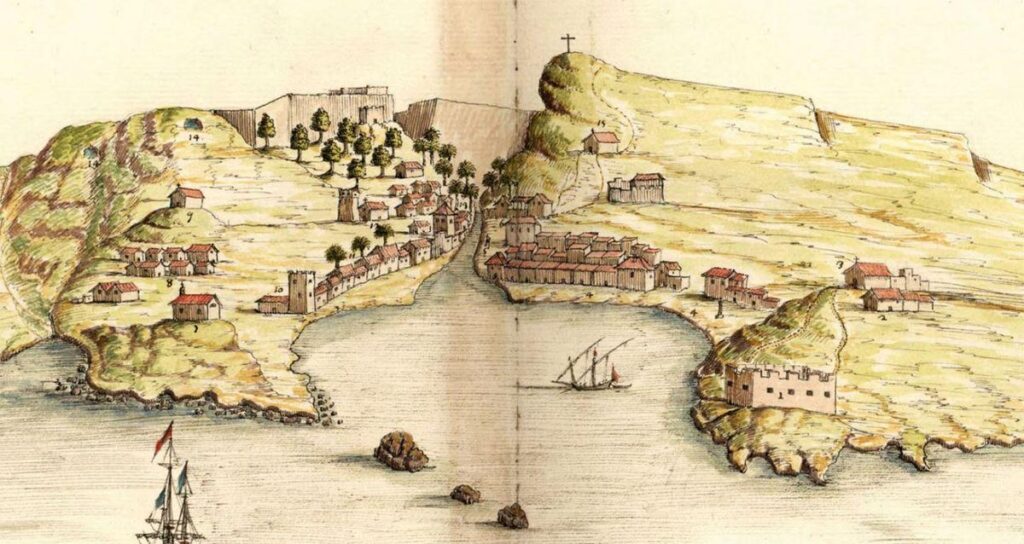Making known a little of the history of Cape Verde is the objective of the lecture “The city of Ribeira Grande and the large port of Mindelo. Economic and cosmopolitan spaces of the islands of Cape Verde”, which the Institute of Ibero-Atlantic Culture (ICIA) will promote on the 27th of May, at 16 pm, at the Municipal Library of Portimão.
The lecture will be given by Maria Manuel Ferraz Torrão, specialist in the History of Cape Verde, and has the support of the History Center of the University of Lisbon (CH-UL).
Lecture Synopsis:
«The importance of the islands of Cape Verde, over the centuries, has always been marked by their geostrategic position in the Atlantic space.
These islands were geographically close to the coast of Guinea, so that their residents could participate in the trade carried out on the banks of the rivers, coming from the hinterland African, but would enjoy, at the same time, the security that insularity provided them.
Thus, the islands of Cape Verde were, from the end of the XNUMXth century to the beginning of the XNUMXth century, a warehouse for goods exchanged between various world spaces. Ships, men, animals, plants, food, more or less valuable goods, information coming from all over the globe crossed in the cosmopolitan space of Ribeira Grande, the first Portuguese capital in the Tropics.
The XNUMXth and XNUMXth centuries, moving Cape Verde away from the main commercial axes, forced its economy to be restructured, altering the constitution of society. In this island space, an “interiorization” took place, a turning inwards that led to an incessant exploration of local products that allowed the subsistence of a population mainly formed by
mestizos and forros.
However, in the 1750th century, the economic changes brought about by the English Industrial Revolution, from XNUMX onwards, once again promoted this archipelago to assume an important role in Atlantic business.
It was the turn of the village of Mindelo and its Porto Grande, on the island of São Vicente, to become a new cosmopolitan center, full of economic occupations and financial transactions, of modern technological applications and a place where the most recent news from all over the world circulated. overseas.
The members of European society who settled there spread a special “glamour” throughout Mindelo; for these transformations to take place, the geostrategic position of the archipelago contributed again and not any native natural wealth.
The situation that led to the “construction” of this new cosmopolitan space in the capital of São Vicente, the reason for it and its real economic and financial repercussions for the archipelago are some of the aspects on which this conference intends to reflect.
About the speaker:
Maria Manuel Ferraz Torrão is an integrated doctoral researcher at the History Center of the Faculty of Arts of the University of Lisbon, professor and deputy director of the Degree in African Studies at the same Faculty.
Within the scope of this degree, he structured and teaches the discipline of History of Cape Verde, the only curricular unit in all Portuguese universities that has as its object of study the history of a former colony of Portugal.
PhD in Modern History from the University of the Azores, she was a researcher at the Instituto de Investigação Científica Tropical between 1987 and 2015, where she was part of the Portuguese-Cape Verdean team that prepared the General History Project of Cape Verde, a milestone of great importance in the historiography of that tropical country .
He also collaborated in many other cooperation projects with the Republic of Cape Verde, given that the history of these islands and their intercontinental relationship and their geo-strategic role in the Atlantic were his main objects of study.
His investigations focus on aspects as diverse as the slave trade between Cape Verde, the coast of Guinea and Spanish America, economic agents, namely, the Portuguese-Castilian families that move in these commercial circuits, the circulation of culture material and immaterial through this space, the historical cartography of the archipelago as well as themes related to environmental history and scientific expeditions to the islands, in particular the one carried out by João da Silva Feijó at the end of the XNUMXth century.
His scientific production is evident in book chapters on the history of the Cape Verde Islands, articles in national and foreign scientific journals, he has participated and organized in various congresses, international seminars and exhibitions, he has also coordinated the edition of documentary collections; it also publishes articles on the history of Cape Verde for the general public.


















Comments